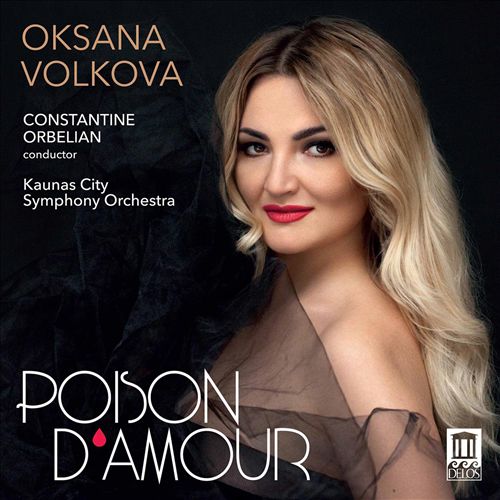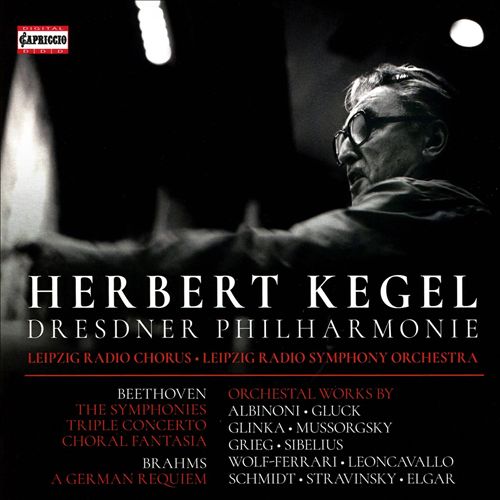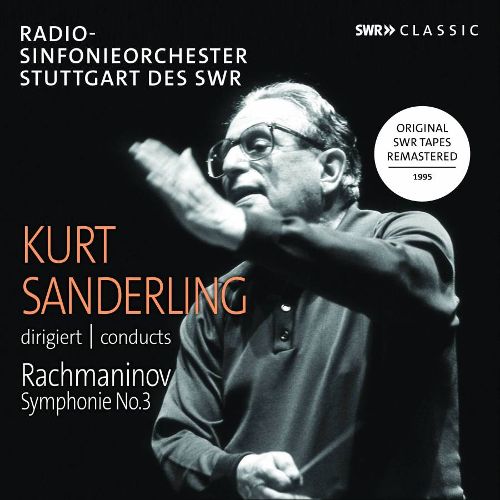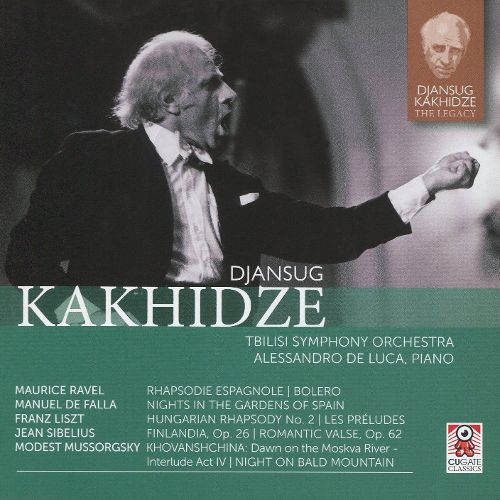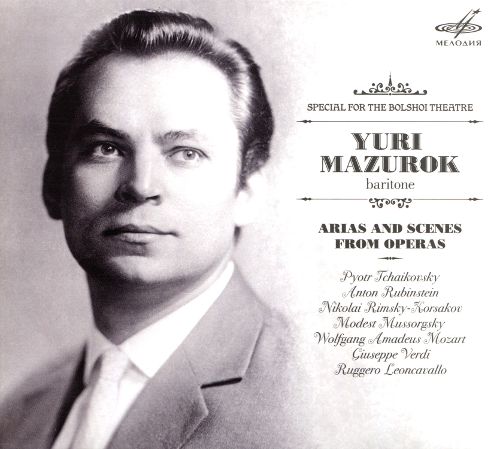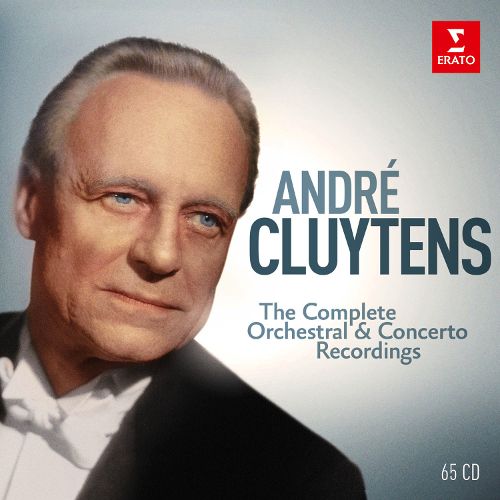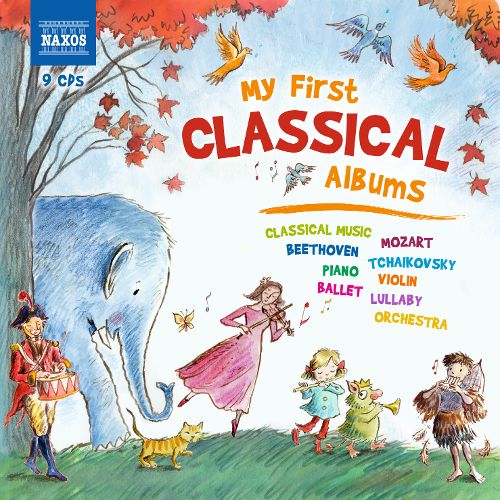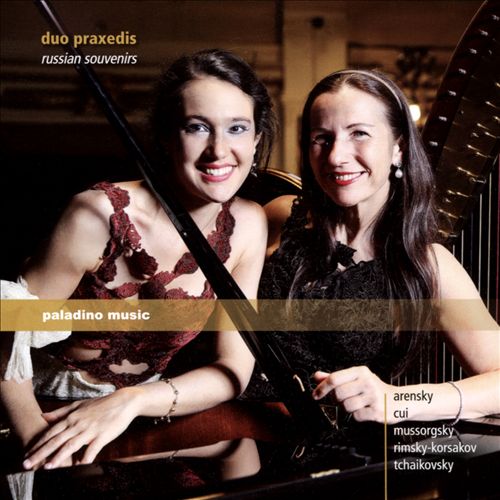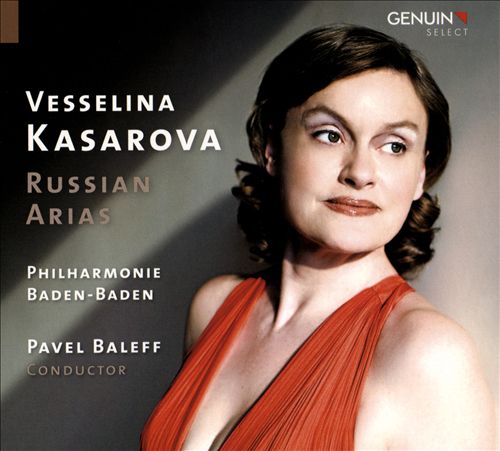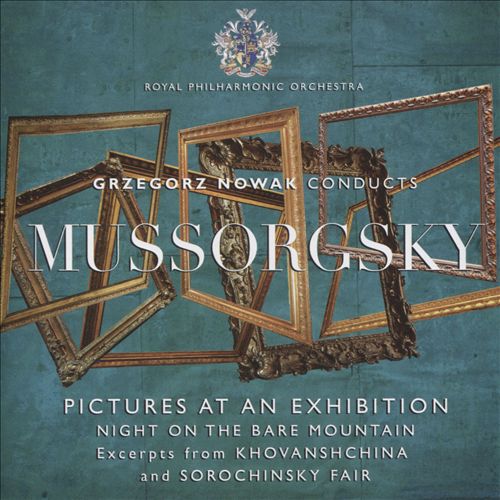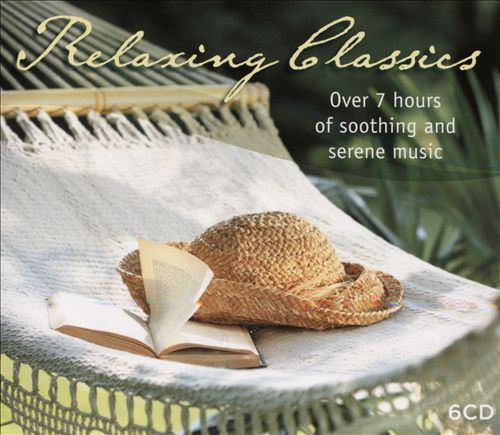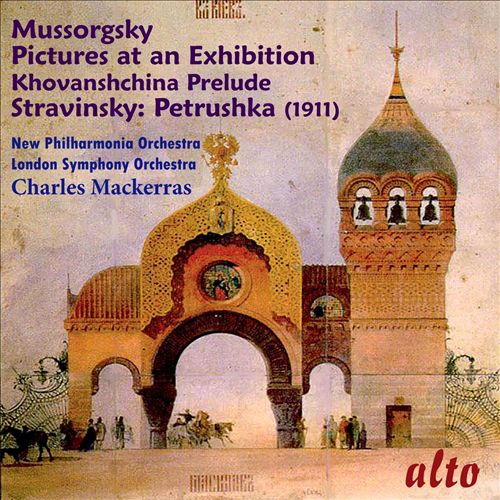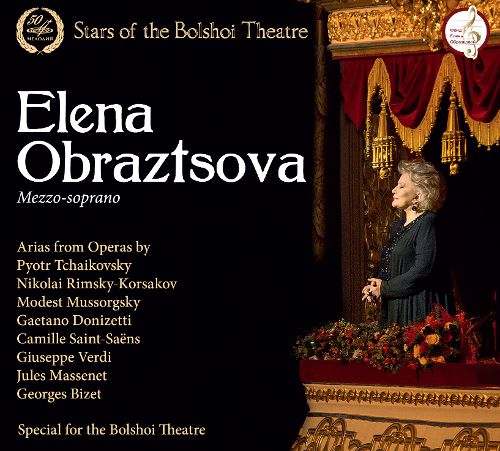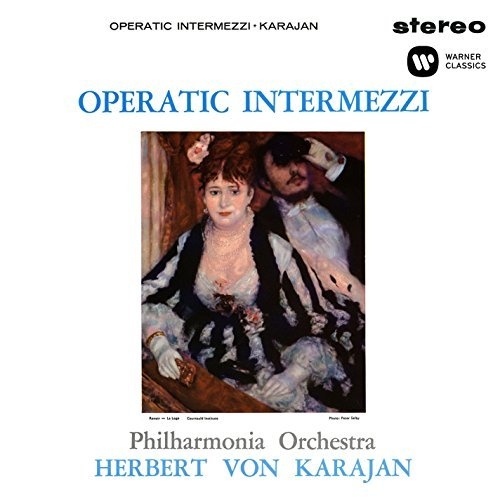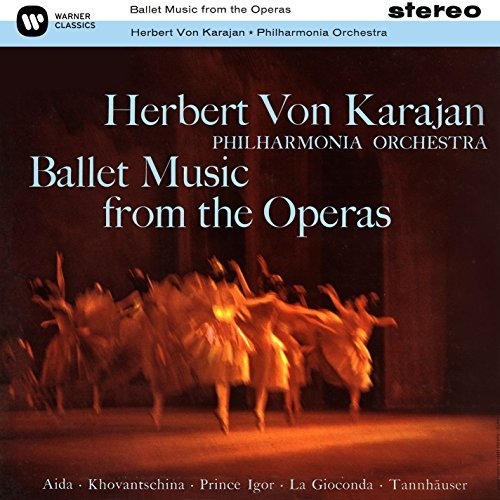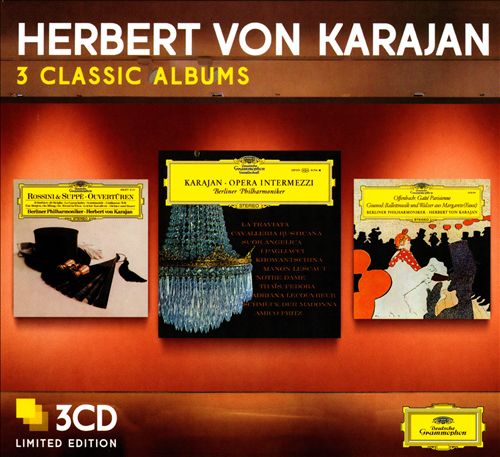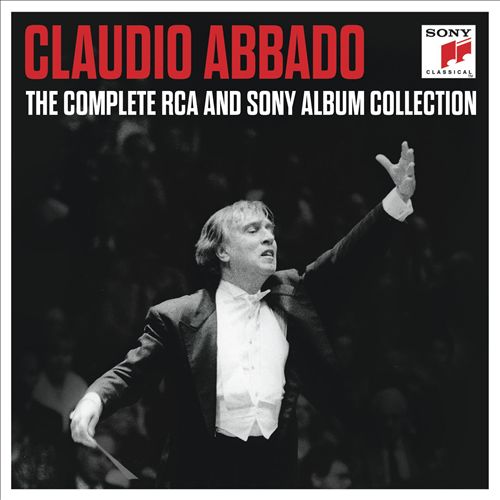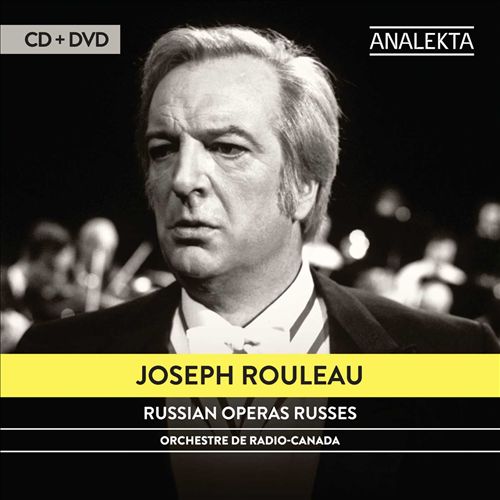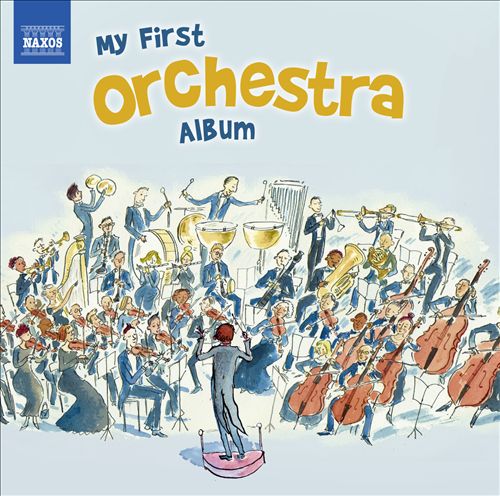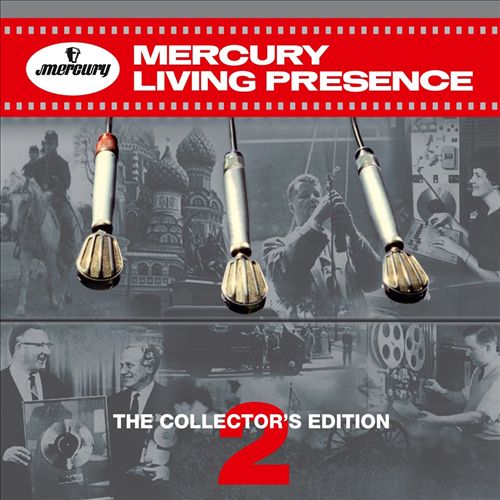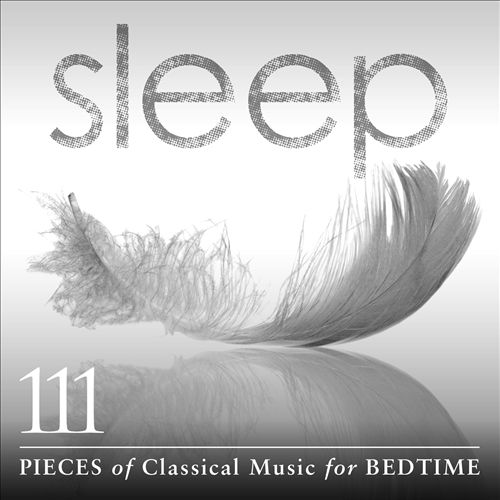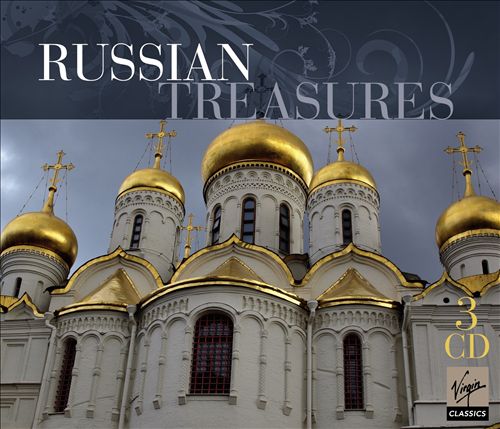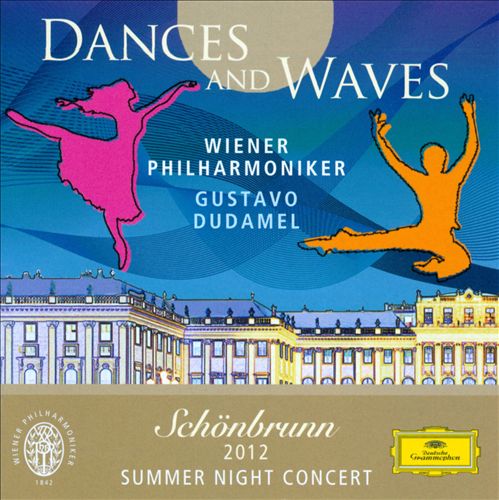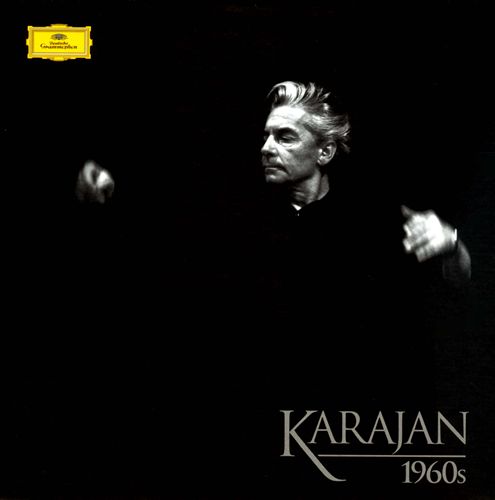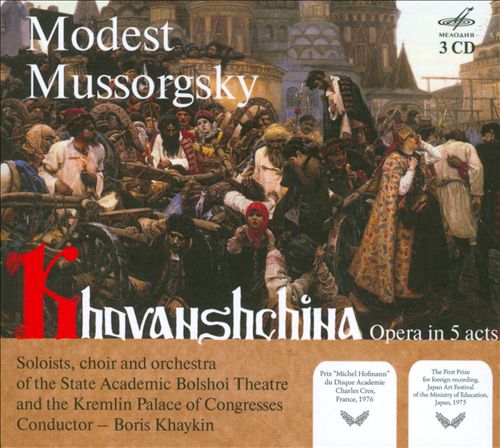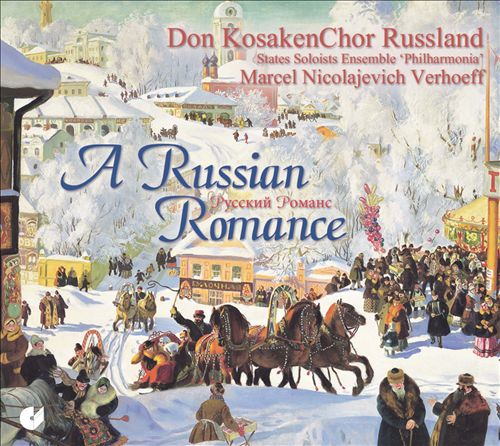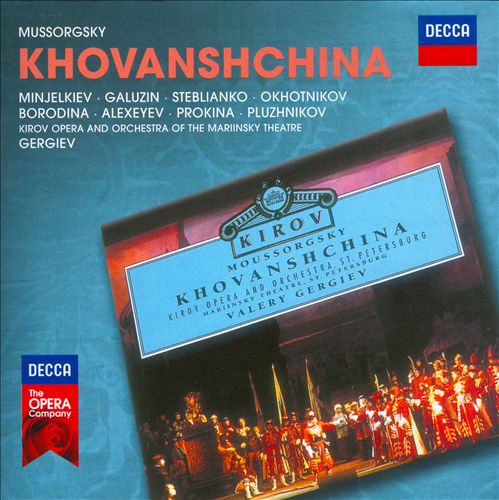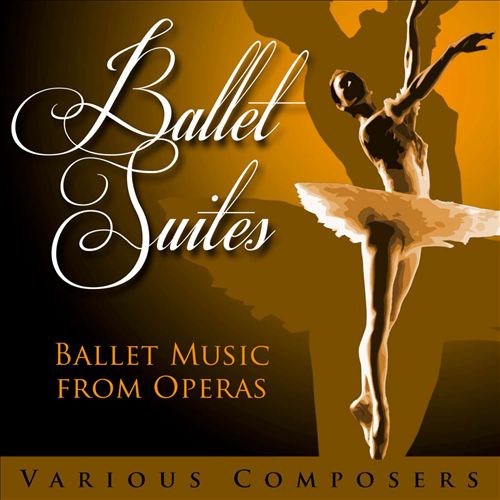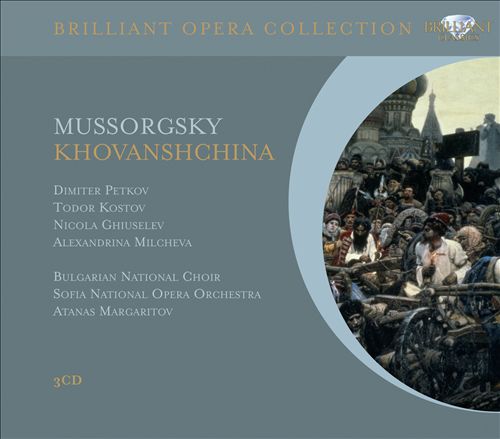Modest Mussorgsky (모데스트 무소륵스키)
Khovanshchina, by Rimsky-Korsakov
100
10,000
1,400
WORK INFO
작곡가: Modest Mussorgsky (모데스트 무소륵스키)작곡년도: 1872 - 1880출판년도: 1883초연: Feb 21, 1886평균연주: 148:21Khovanshchina (, Hovánščina, sometimes rendered The Khovansky Affair; since the ending -ščina is pejorative) is an opera (subtitled a 'national music drama') in five acts by Modest Mussorgsky. Khovanskygate, the name given to a 2014 production in Birmingham, UK, is a modern equivalent. The work was written between 1872 and 1880 in St. Petersburg, Russia. The composer wrote the libretto based on historical sources. The opera was unfinished and unperformed when the composer died in 1881. Like Mussorgsky's earlier Boris Godunov, Khovanshchina deals with an episode in Russian history, first brought to the composer's attention by his friend the critic Vladimir Stasov. It concerns the rebellion of Prince Ivan Khovansky, the Old Believers, and the Muscovite Streltsy against the regent Sofia Alekseyevna and the two young Tsars Peter the Great and Ivan V, who were attempting to institute Westernizing reforms in Russia. Khovansky had helped to foment the Moscow Uprising of 1682, which resulted in Sofia becoming regent on behalf of her younger brother Ivan and half-brother Peter, who were crowned joint Tsars. In the fall of 1682 Prince Ivan Khovansky turned against Sofia. Supported by the Old Believers and the Streltsy, Khovansky — who supposedly wanted to install himself as the new regent — demanded the reversal of Patriarch Nikon's reforms. Sofia and her court were forced to flee Moscow. Eventually, Sofia managed to suppress the so-called Khovanshchina (Khovansky affair) with the help of the diplomat Fyodor Shaklovity, who succeeded Khovansky as leader of the Muscovite Streltsy. With the rebellion crushed, the Old Believers committed mass suicide (in the opera, at least). Nikolai Rimsky-Korsakov completed, revised, and scored Khovanshchina in 1881–1882. Because of his extensive cuts and "recomposition", Dmitri Shostakovich revised the opera in 1959 based on Mussorgsky's vocal score, and it is the Shostakovich version that is usually performed. In 1913 Igor Stravinsky and Maurice Ravel made their own arrangement at Sergei Diaghilev's request. When Feodor Chaliapin refused to sing the part of Dosifei in any other orchestration than Rimsky-Korsakov's, Diaghilev's company employed a mixture of orchestrations which did not prove successful. The Stravinsky-Ravel orchestration was forgotten, except for Stravinsky's finale, which is still used. Although the background of the opera comprises the Moscow Uprising of 1682 and the Khovansky affair a few months later, its main themes are the struggle between progressive and reactionary political factions during the minority of Tsar Peter the Great and the passing of old Muscovy before Peter's westernizing reforms. It received its first performance in the Rimsky-Korsakov edition in 1886.
The St. Petersburg and world premiere took place on 21 February (9 February O.S.), 1886 using the Rimsky-Korsakov version. Also in St. Petersburg on 27 October 1893 the opera was presented by artists of the Russian Opera Society.From WIKIPEDIA
RELEASED ALBUMS
-
Leopold Stokowski, Vol .2March 14, 2025
-
Poison d'AmourMarch 19, 2021
-
Herbert Kegel, Dresdner PhilharmonieOctober 5, 2018
-
Kurt Sanderling conducts Rachmaninov Symphonie No. 3January 5, 2018
-
Djansug Kakhidze: The Legacy, Vol. 9January 5, 2018
-
Arias and Scenes from OperasAugust 4, 2017
-
André Cluytens: The Complete Orchestral & Concerto RecordingsJune 16, 2017
-
My First Classical Albums [Naxos]October 14, 2016
-
Russian SouvenirsNovember 13, 2015
-
Russian AriasSeptember 25, 2015
-
Grzegorz Nowak Conducts MussorgskyAugust 28, 2015
-
Relaxing Classics [ABC Classics]April 17, 2015
-
Mussorgsky: Pictures at an Exhibition; Khovanshchina Prelude; Stravinsky: Petrushka (1911)March 31, 2015
-
Stars of the Bolshoi: Elena ObraztsovaJanuary 13, 2015
-
Operatic IntermezziAugust 12, 2014
-
Ballet Music from the OperasAugust 12, 2014
-
Herbert von Karajan: 3 Classic AlbumsJuly 15, 2014
-
The Complete RCA and Sony Album CollectionJune 16, 2014
-
Opéras russes (Russian Operas)September 13, 2013
-
My First Orchestra AlbumJune 3, 2013
-
Mercury Living Presence: The Collector's Edition, Vol. 2April 8, 2013
-
Sleep: 111 Pieces of Classical Music for BedtimeJanuary 4, 2013
-
Russian TreasuresSeptember 17, 2012
-
Dances and Waves: Schönbrunn Summer Night Concert 2012June 29, 2012
-
Karajan 1960sMay 14, 2012
-
Modest Mussorgsky: KhovanshchinaNovember 14, 2011
-
A Russian RomanceOctober 25, 2011
-
Mussorgsky: KhovanshchinaOctober 24, 2011
-
Ballet Suites: Ballet Music from OperasOctober 21, 2011
-
Mussorgsky: KhovanshchinaSeptember 19, 2011
FEATURED MOVIES
-
 06:21무소륵스키: 호반시치나, 림스키-코르사코프 편곡 Dawn on the Moskva River04.05.2011Mariinsky Concert Hall
06:21무소륵스키: 호반시치나, 림스키-코르사코프 편곡 Dawn on the Moskva River04.05.2011Mariinsky Concert Hall -
 09:07무소륵스키: 호반시치나, 림스키-코르사코프 편곡1979Moscow
09:07무소륵스키: 호반시치나, 림스키-코르사코프 편곡1979Moscow -
 02:42무소륵스키: 호반시치나, 림스키-코르사코프 편곡 part 151979Moscow
02:42무소륵스키: 호반시치나, 림스키-코르사코프 편곡 part 151979Moscow -
 09:21무소륵스키: 호반시치나, 림스키-코르사코프 편곡 part 11979Moscow
09:21무소륵스키: 호반시치나, 림스키-코르사코프 편곡 part 11979Moscow -
 09:16무소륵스키: 호반시치나, 림스키-코르사코프 편곡1979Moscow
09:16무소륵스키: 호반시치나, 림스키-코르사코프 편곡1979Moscow -
 08:55무소륵스키: 호반시치나, 림스키-코르사코프 편곡 Prelude2007
08:55무소륵스키: 호반시치나, 림스키-코르사코프 편곡 Prelude2007 -
 09:46무소륵스키: 호반시치나, 림스키-코르사코프 편곡 part 41979Moscow
09:46무소륵스키: 호반시치나, 림스키-코르사코프 편곡 part 41979Moscow -
 09:12무소륵스키: 호반시치나, 림스키-코르사코프 편곡1979Moscow
09:12무소륵스키: 호반시치나, 림스키-코르사코프 편곡1979Moscow -
 09:25무소륵스키: 호반시치나, 림스키-코르사코프 편곡 part 131979Moscow
09:25무소륵스키: 호반시치나, 림스키-코르사코프 편곡 part 131979Moscow -
 06:44무소륵스키: 호반시치나, 림스키-코르사코프 편곡1979Moscow
06:44무소륵스키: 호반시치나, 림스키-코르사코프 편곡1979Moscow -
 09:18무소륵스키: 호반시치나, 림스키-코르사코프 편곡1979Moscow
09:18무소륵스키: 호반시치나, 림스키-코르사코프 편곡1979Moscow -
 07:16무소륵스키: 호반시치나, 림스키-코르사코프 편곡 part 51979Moscow
07:16무소륵스키: 호반시치나, 림스키-코르사코프 편곡 part 51979Moscow -
 05:14무소륵스키: 호반시치나, 림스키-코르사코프 편곡 overture
05:14무소륵스키: 호반시치나, 림스키-코르사코프 편곡 overture
ALBUM MUSIC
WORKS SHOUTS



